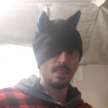Swords, Spells, and Serpents, Oh My!
Writing Your Fantasy

A few years back, I attended a local writer’s conference. We talked about all aspects of writing: grammar, dialogue, character development, punctuation, world building, blah, blah, blah. At the end of the conference, a few of us decided to divulge more subtle problems. Among our issues, someone brought up the difficulties engendered by writing original, fantasy stories.
Obviously, there are some well-known fantasies such as The Lord of the Rings, the Harry Potter books, and the works of lesser known greats such as Charles Barnitz, but then, how does a writer of fantasy create a fantasy world that doesn’t borrow from existing stories, and is it a problem to borrow?
Well, it’s my belief that there are no original stories, not really. Pretty much every fantasy can be likened to Arthurian tales or Germanic Folklore. The stories are there, but it’s the presentation that will make a new story “original.” While I suggested to steer clear from retelling a story which is already in existence, I also suggested the imperative need to focus on the setting, the plot, the characters, their actions, interactions, and reactions. A story needs to be entertaining regardless of the genre, and borrowing something like the inheritance of a magic sword is far from plagiarism.
My premise was duly considered, and someone asked something like: “What if I just want to make the spells different, like, what if everything I have is already original, but I don’t want to use traditional magic?”
I thought that was a great question. It’s commonly agreed upon that spells consist of incantations—words announced. Sometimes, spells can require an artifact, an item of sorts, like a wand, a gem, a trinket of some kind.
Now, admittedly, I watch a lot of television. I’ve seen many movies. I’ve played many video games. I’ve even engaged in a few sessions of Dungeons and Dragons during my—we’ll say—awkward, teenage years.
Due to these facts, I believe I have a thorough understanding of what “magic” can mean, and it doesn’t have to mean “spells” as they are more commonly understood, so I explained my take on varieties of magic.
Physical rituals like hand signs or body movement can be employed in lieu of words. One may also require the use of reagents: specific items held in one’s possession for a specific spell. There's blood magic, where blood is required. Don't forget scrolls or runes. Mancers, like pyromancers or electromancers, don't usually require anything; they just point, and blow stuff up. One can summon ethereal creatures from a realm beyond.
Naturally, fantasies require more than spells. As a matter of fact, one can write a fantasy with no magic at all. One can write a story that is not considered fantasy, but more appropriately speculative fiction in which magic is employed, but the overall tone of the tale is not fantasy, so what makes a fantasy, really?
It’s my opinion, and I can’t stress that enough—this whole presentation is only one person’s opinion—that what makes a tale a fantasy is the setting; it may be Medieval England, Feudal Japan, Ancient Rome. It doesn’t really matter if it’s Earth, and in fact, a whole new world usually provides a more fantastical feel. The history of that world may be the deciding factor.
A lack of automated technology is probably of prime importance regarding that factor, though one can write a sci-fantasy. As an avid gamer, I’m fully versed in the Final Fantasy series, and they often provide “lost” technology such as combustion engines, air ships, guns even, but I do think adding that kind of technology dissipates that fantastical feel, hence sci-fantasy.
Adding mystical creatures such as goblins, orcs, and dragons always provides a fantasy feel, but there have been movies in which the modern era has been plagued by dragons. There are games where elves and orcs exist in a cyber punk age. Steam Punk also has mystical races, and this is precisely why there are classifications—varied “intensities” of fantasy elements.
Let me ask this: Is Buffy the Vampire Slayer a fantasy series? What about the spin off, Angel? Were those series original? The presentations certainly were original, and I like to think of them as fantasies.
In short, there is no cut-and-dry method for creating an original fantasy. I mean, if The Shawshank Redemption had had elves and orcs in prison with Andy Dufresne, would it have been a fantasy?
If Harry Potter had taken place in the distant future with aliens and bio-mechanical implants, which allowed one to harness metaphysical energy for unleashing “magic spells,” would it have still been considered fantasy?
These are tough questions to be sure. What about the original Star Wars movies? They’re certainly not sci-fi; a guy with a sword made of light goes around casting spells with his mind. If Star Wars was anything, it was sci-fantasy—it was a long time ago…in a galaxy far far away…
The most important thing to consider when writing any story isn’t the genre, but the point of the story. Why are you, the writer, telling it? To whom? What is the point of the story?
Know the answers to those questions, then add your fantasy elements. Need a bad guy? Make it an old elf. Will there be action? Cast some fireballs. Will there be romance? Have a knight rescue a princess in distress.
A Knight’s Tale was fantasy, right?
The tale of Robin Hood is fantasy, right?
Why? Because there are sword fights and a guy with a bow and arrows? There are people who sword fight and shoot arrows today, and let’s not gloss over the fact that during Medieval England people did fight with swords and bows, so such tales would have been contemporary fiction back then.
Perhaps, the most important question to ask is to one’s self: What do I think of when I think of fantasy?
Are you riding a pegasus? Do you have a pet griffon? Is your sword your most trusted compatriot?
Bust out some Roman Mythology or Germanic Folklore. Read through some ancient tales of Nordic heroes fighting for a chance to die in battle and live eternally in Valhalla. Then, relax, and just imagine your life in such a place, in such a time; and at the end, if you think you’ve likened too greatly your tale to Dante’s Divine Comedy, do some editing, a re-write.
Remember, your story can end up just like something someone else has already written, but until you’ve published it, and you’ve started charging people to read it, it isn’t plagiarism; fan fiction isn’t plagiarism even though elements are borrowed because it, per force, has to be free for the public.
I always go back to E.L. James. Fifty Shades of Grey is original, but the premise was borrowed from her own fan fiction, which had borrowed elements from an existing series. Eventually, you can water down an existing story by rewriting it to the point where nothing from the original is recognizable, and slowly incorporate your fantasy elements.
Relax, write, edit, and provide a poignant story that people can enjoy. No one can relate to something completely original anyway, right?
Finally, if you like my advice, be sure to keep your eyes peeled for my next release, How to Become a Successful Writer: Secrets the Mainstream Publishers Don’t Want You to Know. I’m planning a release for the end of November 2017, and it’ll be brimming with advice, sample writing, exercises, resources, and marketing hints.

Thanks for reading. Share with your friends, and if you’re feeling charitable, throw out a little donation.
About the Creator
Aaron Dennis
Creator of the Lokians SciFi series, The Adventures of Larson and Garrett, The Dragon of Time series, and more.






Comments
There are no comments for this story
Be the first to respond and start the conversation.